
 Flash News
Flash News
Giro D'Italia starts today, here are the road axes that will be blocked in Tirana from 13:00-18:00
Who is the new Pope?
Pope Leo XIV greets the faithful for the first time in St. Peter's Square
"Freedom works", DP welcomes the US position
Reuters: Rama seeks fourth term in elections dominated by corruption and criminal gangs
Albania's level of readiness for EU membership is the lowest in relation to the countries of the Western Balkans
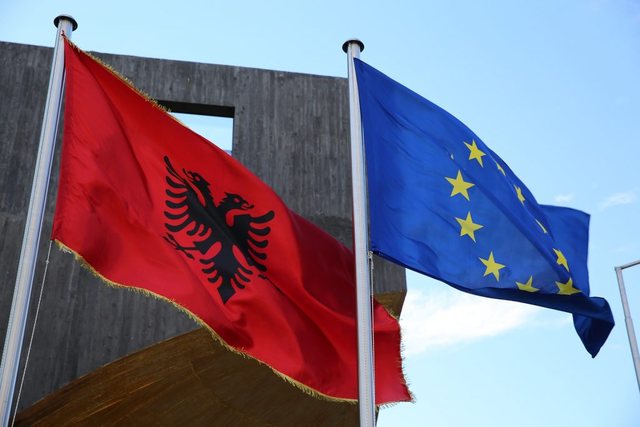
On September 19, a German-French working group of experts unveiled a report recommending that the EU should be ready for enlargement by 2030, which includes a series of institutional reforms.
In terms of the level of preparation, Albania is somewhat behind other candidates with active negotiation processes, at least according to the reports of the European Commission.
According to the calculation carried out by the European Stability Initiative at the beginning of this year, based on the reports of the European Commission 2022, Albania's level of readiness for EU membership on a scale from 0 to 4 is 1.6.
Montenegro has the highest preparedness level with 2.1, while Serbia and North Macedonia are tied for second place with 2.0.
Last year's European Commission's report on Albania contained relatively positive assessments of justice reform, including the vetting process for judges and prosecutors, as well as progress in the fight against organized crime. The fight against corruption, freedom of expression and conditions for the work of civil society have been evaluated negatively, without any progress. The Commission's next report is expected in October.
Ardian Hackaj, Research Director of the Institute of Cooperation and Development and Coordinator of the Forum of the Tirana League, says for the European Western Balkans that, while the review and legal harmonization of the Albanian legislation is progressing at a good pace and can actually be closed for the year 2030, the challenge will be the implementation phase.
" Success - and its non-return - will depend on the readiness of the Albanian institutions and their good governance. Here, recent developments, such as the suspension of IPARD funds after the OLAF investigation, constitute an alarm bell", said Hackaj.
In July, the media reported that the European Commission had suspended funds intended for Albanian agriculture (IPARD) based on preliminary information provided by the European Anti-Fraud Office (OLAF) on suspected corruption.
Ardian Hackaj adds that the second most important conditioning factor has to do with Albania-EU convergence and will depend on the financial cost of Albania's "readiness".
"The Institute for Cooperation and Development judges that the candidate countries of the region cannot realistically be expected to cover the cost of convergence with the EU with their budget, nor with the current EU funding. To enable a meaningful convergence, our countries need earlier access to EU cohesion support, which prioritizes social and economic development at the local level", says Hackaj .
Rritja e fondeve të para-anëtarësimit ka qenë një nga elementët kryesorë të propozimeve të fundit për të ringjallur zgjerimin, duke përfshirë planin e Komisionit Evropian të shpallur nga presidentja Ursula von der Leyen në forumin e Bratislavës GLOBSEC në maj, si dhe raportin franko-gjerman.
Nga ana tjetër, Gjergji Vurmo, Drejtor Programi i Institutit për Demokraci dhe Ndërmjetësim dhe anëtar i Grupit Këshillimor për Politikat Ballkani në Evropë (BiEPAG), mendon se kjo nuk është çështje gatishmërie teknike, por një vendim politik i BE-së. .
“Sigurisht që Shqipëria nuk mund të përgatitet për anëtarësim të plotë deri në vitin 2030 dhe kjo është diçka që edhe Charles Michel e dinte sepse ai bëri thirrje për një vendim politik, që sigurisht nuk shoqërohet me gatishmëri teknike… diçka e ngjashme me pranimin e Greqisë dhe Portugalisë. ”, thotë Vurmo.
Ai beson se kjo është e vërtetë për të gjitha vendet e Ballkanit Perëndimor, jo vetëm për Shqipërinë.
“Shqipëria sapo mori raportin e shqyrtimit për grupin e parë, i cili zgjati një vit, dhe ne tani po lexojmë se çfarë duhet të bëjë Shqipëria për të përmbushur kriteret e anëtarësimit… përfundimisht. Është një diskutim krejtësisht i ndryshëm për sasinë e kohës që nevojitet vetëm për këtë grup”, thotë Vurmos.
Based on this report, the Council of the EU will set the conditions for the opening of the cluster, which covers the areas of the rule of law and the functioning of democratic institutions. However, to close the cluster, Albania will have to implement the relevant reforms.
Based on the analysts' assessment, the country can reach a certain level of preparation by 2030, but in fact meeting the most important membership criteria in this timeframe "may be an insurmountable challenge". The decision to expand, however, is always political to a certain extent, and the criterion of the level of "good enough" preparation may change over time. Albania and other candidate countries can still hope that the decision to expand until 2030 will be much more political than technical.
Latest news


Two young men arrested for supplying criminal groups with firearms
2025-05-09 09:45:19
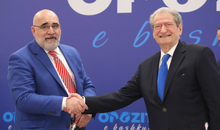

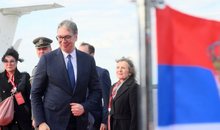




Foreign exchange/ How much foreign currencies are bought and sold today
2025-05-09 08:19:18
The gift that Berisha gave to Rama 'live'
2025-05-09 08:13:51
3 signs that show you are spiritually protected
2025-05-09 08:05:39

Bars can't hold back anymore, start increasing coffee prices, 4.7% more in April
2025-05-09 07:46:49

Horoscope, what do the stars have in store for you today?
2025-05-09 07:22:06
Unstable weather, afternoon brings rain
2025-05-09 07:01:29
Morning Post/ In 2 lines: What mattered yesterday in Albania
2025-05-09 06:45:46

How did LaCivita change the DP campaign? Berisha: He studied the opponent
2025-05-08 22:49:51

David defeats Goliath
2025-05-08 22:15:50

Journalist: There are SPAK infiltrators in party headquarters
2025-05-08 21:55:15
Who is the new Pope?
2025-05-08 21:48:13
Berisha finally reveals when he will retire from politics
2025-05-08 21:33:46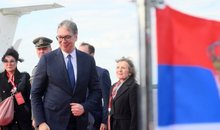


LaCivita in Lezha: Albanians will fire Edi Rama from his job
2025-05-08 21:11:20


Berisha: LaCivita chose us because he believes in Reagan's program
2025-05-08 20:48:40
He rejected America to serve Pogradec, Genti Çela tells about life in "Elevate"
2025-05-08 20:26:28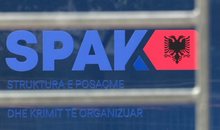




Pope Leo XIV greets the faithful for the first time in St. Peter's Square
2025-05-08 19:29:33




Photo session with LaCivitta in Tirana: For Great Albania
2025-05-08 18:40:18
Source: DASH decision a personal victory for Berisha
2025-05-08 18:30:10
Take off those crazy glasses and see where you've taken him?
2025-05-08 18:02:47
LDK files criminal charges against members of the incumbent Government
2025-05-08 18:02:00

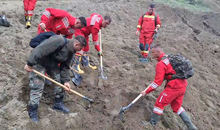





BIRN analysis: Tirana, the determining district for the future majority
2025-05-08 16:04:03




Chris LaCivita's contract with the DP, Berisha: 100% correct and clean
2025-05-08 15:11:11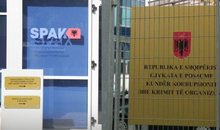
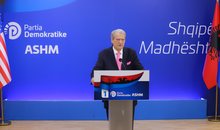
"These are the peak days", Berisha reveals when he will travel to the USA
2025-05-08 14:45:25
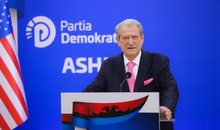
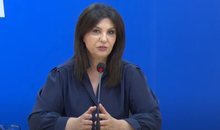
Endless boxes with filled-in ballots, DP demands separation of votes from Greece
2025-05-08 14:11:12


Photo/ Who are the 3 associates of Talo Çela arrested in Dubai?
2025-05-08 13:37:09

Hetimi për krimet zgjedhore, Altin Dumani zbarkon në Prokurorinë e Shkodrës
2025-05-08 13:06:21
DASH paves the way for Berisha, Alizoti: Great news on the eve of Great Albania!
2025-05-08 13:03:48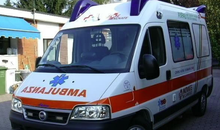

"Freedom works", DP welcomes the US position
2025-05-08 12:48:07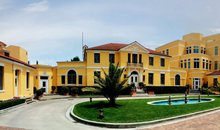
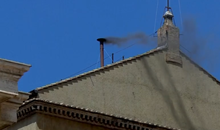
Black smoke rises from the Sistine Chapel, the Vatican still without a Pope
2025-05-08 12:26:18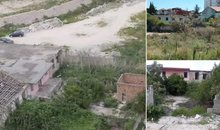





Davide Pecorrelli extradited to Albania
2025-05-08 11:29:04
'May 11, Albania will react', Xhaferri: Electoral criminals will pay
2025-05-08 11:21:46

Gjin Gjoni: Non Grata fell, Rama should get ready to go to McGonigal
2025-05-08 11:01:54
May 8th deadline for immigrants to vote in Greece extended by one day
2025-05-08 10:48:42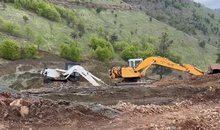
Collapse of massive chrome structure, still no trace of 29-year-old
2025-05-08 10:40:04
Vehicle bursts into flames in Paris Commune
2025-05-08 10:25:43
He gave land to his father and cousin, Basir Çollaku denounces the SP candidate
2025-05-08 10:16:16
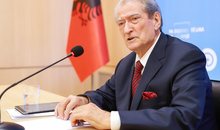



Electoral Crimes/ BKH agents and Police conduct checks in Shkodra
2025-05-08 09:19:13
3 associates of Talo Çela arrested in Dubai
2025-05-08 09:02:28
Mouse in the owl's claws, Chris LaCivita responds directly to Rama
2025-05-08 08:45:40
Foreign exchange, how much foreign currencies are sold and bought today
2025-05-08 08:30:38
BIRN: Organized crime, the 'invisible party' of the Durrës elections
2025-05-08 08:26:35
Horoscope, what do the stars have in store for you today?
2025-05-08 08:08:15
Cloudy and rainy, what the weather is expected to be like throughout the day
2025-05-08 07:52:13
Posta e mëngjesit/ Me 2 rreshta: Çfarë pati rëndësi dje në Shqipëri
2025-05-08 07:40:16
